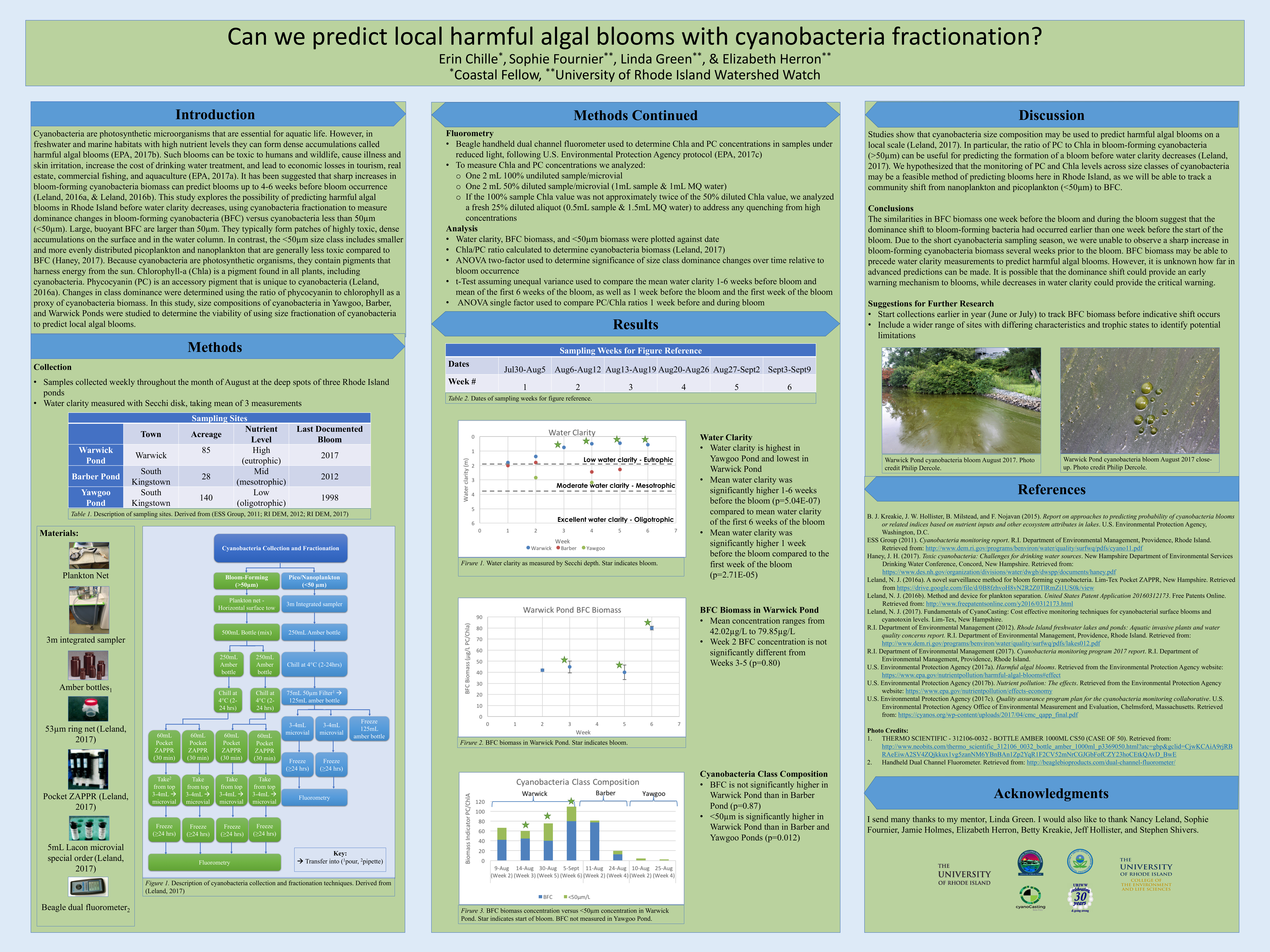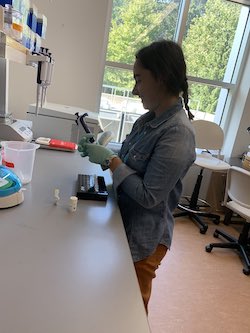
Graduate Research
Developmental Biology, Omics, Ecophysiology
My current research in the Putnam Lab investigates maternal provisioning, the maternal-to-zygotic transition, and effects of ocean acidification during the early development of the Pacific rice coral, Montipora capitata. I am examining nine life stages from pre-fertilization to adult, focusing on shifts in the gene expression network within the first twenty-four hours post-spawning. My research explores how the maternal and zygotic transcriptomes of symbiotic developers (M. capitata) and aposymbiotic developers (A. millepora) differ and relate to their life-history strategies. The goal of this research is to provide high-resolution insight into maternal provisioning and the maternal-to-zygotic transition. In doing so, I aim to provide a more detailed description of the maternal complement of mRNA and explore its importance for carryover or latent effects relating to environmental stressors.
Undergraduate Research
Reproductive Ecology
I joined the Putnam Lab in February 2018, during my junior year at the University of Rhode Island. As an undergraduate research assistant in the lab, I assisted (now) Ph.D. candidate Kevin Wong in investigating the mechanisms causing intra- and trans-generational acclimatization of reef-building coral, Porites astreoides, in response to environmental change. Under his mentorship, I learned how to perform laboratory techniques such as Symbiodiniaceae cell counts, RNA and DNA extractions, and BCA total protein assays to help piece together the mechanisms behind these complex processes.
In addition to lab work, during the summer of 2019, I accompanied Kevin for fieldwork in Bermuda. In the field, I assisted with coral collections, culturing, and sampling. I also helped with respirometry trials, surface area measurements, water quality monitoring, and RGB color analysis. In the off-hours, I taught salsa dancing to several interns at the Bermuda Institute of Ocean Sciences.
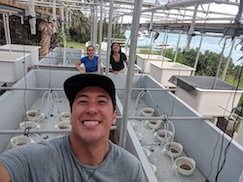
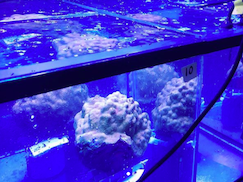
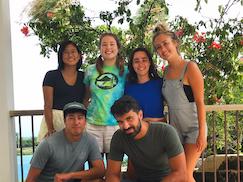
Reef Community Ecology
In Fall 2016 I joined Graham Forrester’s Lab at the University of Rhode Island, where I worked throughout my undergraduate career. In the Forrester Lab, I organized data collected during the URI Bonaire J-term Program from 2014 onward to compile as a status report for the STINAPA Bonaire National Parks Foundation. Later on, I assisted with fieldwork in the British Virgin Islands. In the field, I contributed to experimental site construction, identification of parasites, and fish collection and observation. Upon return, I assisted in manuscript writing and revision for submission to Scientific Reports.
Published in Scientific Reports:
Forrester, G.E., Chille, E., Nickles, K. et al. Behavioural mechanisms underlying parasite-mediated competition for refuges in a coral reef fish. Sci Rep 9, 15487 (2019). https://doi.org/10.1038/s41598-019-52005-y
Presented at the Meeting of the Western Society of Naturalists (2019) & URI Annual Undergraduate Research Fellows Symposium (2018):
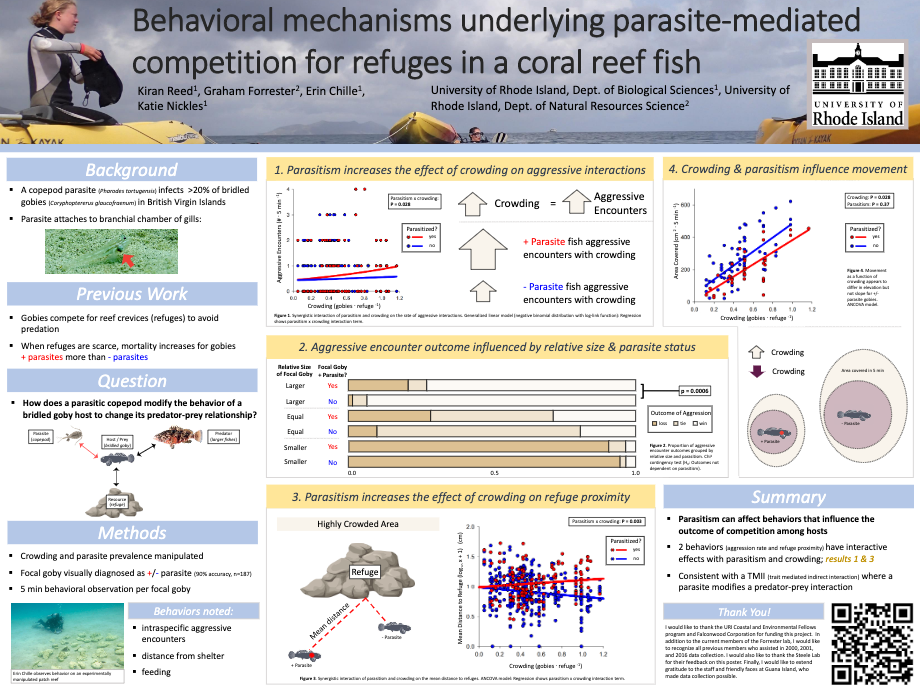

Long-Term Water Quality Monitoring, Citizen Science, Pond Ecology
From April 2017 through February 2018 I worked in the URI Watershed Watch Lab with dual roles as an undergraduate research fellow and technician. The URI Watershed Watch, founded in 1988, is a researcher-led citizen science program that coordinates the long-term water quality monitoring of over 250 sites throughout Southern New England. My role as a technician included supporting the citizen science program via volunteer training, preparation and maintenance of equipment, sample processing, water sampling, and data entry/quality assurance.
As a fellow, I developed a project that investigated the efficacy of using cyanobacteria fractionation to track the formation of harmful algal blooms. I worked with Narragansett, RI EPA scientists to:
- Develop monitoring and analytical protocols for the collection and size fractionation of cyanobacteria
- Conduct fluorometric analysis on over 100 samples from three ponds to determine chlorophyll and phycocyanin concentration.
- Statistically analyze trends in water clarity and cyanobacteria size class community composition
Presented at the URI Annual Undergraduate Research Fellows Symposium (2017):
